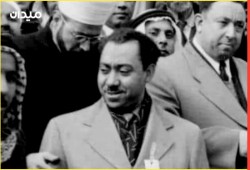بقلم الشيخ عبدالعزيز رجب
بثلاث لغات ( العربية – الإنجليزية – الإيطالية)
الحمد لله الذي ملأ بنور الإيمان قلوب أهل السعادة، فأقبلت على طاعة ربها منقادة، فحققوا حسن المعتقد وحسن العمل، وحسن الرضا وحسن العبادة، أحمده سبحانه وأشكره، وقد أذن لمن شكر بالزيادة، وأشهد أنْ لا إله إلا الله وحده لا شريك له، شهادة تبلغ صاحبها المنى وزيادة.
وأشهد أن سيدنا محمد عبده ورسوله، المخصوص بعموم الرسالة، وكمال السيادة، اللهم صلِّ وسلم عليه وعلى آله وأصحابه وأتباعه إلى يوم السعادة.
أما بعدُ، فعندما يمر علينا شهر شعبان المبارك، نتذكر هذه المناسبة العظيمة، مناسبة ليلة النصف من شعبان، والناس يختلفون حولها، وحول فضلها، ما بين مثبت وما بين نافٍ أن يكون لهذه الليلة فضل؛ لذلك آثرنا في هذه المناسبة أن نوضح بعض الأمور المتعلقة بها، سائلين المولى -عز وجل- أن يتقبله منا، وأن يجعله لوجهه خالصًا، وليس لأحد غيره فيه نصيبًا.
عناصر الموضوع:
سنتناول -بمشيئة الله- من خلال هذا الموضوع النقاط التالية: أسماء هذه الليلة، فضلها، مشروعية الاهتمام بها، وكيف ندرك فضلها
الموضوع:
أولاً: أسماء هذه الليلة:
ذكر العلماء وعلى رأسهم فضيلة الشيخ/حسين مخلوف -رحمه الله تعالى- شيخ الأزهر سابقًا، في كتابه (شذرات في فضائل ليلة النصف) أن لهذه الليلة أسماء متعددة، وكل اسم من هذه الأسماء يحمل معنىً وفضلاً لها، فمن أسمائها: "ليلة الرحمة، ليلة الإجابة، ليلة الغفران، ليلة القسمة، ليلة التقدير والحياة، ليلة البراءة، والليلة المباركة.."، وذكر لكل اسم من هذه الأسماء ما يؤيدها بأثر، أو بمعنىً استلهمه من خلال ما جاء في فضل هذه الليلة [1].
ثانيًا: فضل هذه الليلة:
وأما فضل هذه الليلة فقد جاء أن فيها:
1- مغفرة الذنوب: فعن أبي هريرة -رضي الله عنه- قال: قال -صلى الله عليه وسلم-: "إذا كان ليلةُ النصفِ من شعبانَ يغفرُ اللهُ لعبادِهِ إلا لمُشركٍ أو مُشَاحِنٍ"، وفي رواية: "أو قاتل نفس"، وفي رواية أخرى: "إلا العاق"[2].
2- يستجيب الله فيها الدعاء: فعن عن عثمان بن أبي العاص -رضي الله عنه- عن النبي -صلى الله عليه وسلم- قال: "إذا كان ليلةُ النصفِ من شعبانَ نادى منادٍ: هل من مستغفرٍ فأغفرَ له؟ هل من سائلٍ فأُعطيَه؟، فلا يسألُ أحدٌ شيئا إلا أُعطي إلا زانيةً بفرجِها أو مُشْرِكا"[3].
وقد قال الإمام الشافعي -رحمه الله-: "بلغنا أن الدعاء يستجاب في خمس ليال: ليلة الجمعة، والعيدين، وأول رجب، ونصف شعبان"[4].
ثالثًا: مشروعية الاهتمام بها:
وأما مشروعية الاهتمام بها، فقد أفتى كثير من علماء الأمة على جواز ذلك، ومنهم:
1- شيخ الإسلام ابن تيمية -رحمه الله- قال: "إذا صلى الإنسان ليلة النصف وحده أو في جماعة خاصة، كما كان يفعل طوائف من السلف، فهو أحسن، وأما الاجتماع في المساجد على صلاة مقدرة؛ كالاجتماع على مائة ركعة بقراءة ألف: ﴿قُلْ هُوَ اللَّهُ أَحَدٌ﴾ [الإخلاص:1] دائمًا فهذا بدعة لم يستحبها أحد من الأئمة، والله أعلم[5].
2- ابن رجب الحنبلي -رحمه الله- يقول: "فينبغي للمؤمن أن يتفرغ في تلك الليلة لذكر الله تعالى ودعائه بغفران الذنوب وستر العيوب وتفريج الكروب، وأن يقدم على ذلك التوبة، فإن الله تعالى يتوب فيها على من يتوب.
وأنشد:
فقم ليلة النصف الشريف مصليا * * * فأشرف هذا الشهر ليلة نصفه
فكم من فتى قد بات في النصف آمنا * * * و قد نسخت فيه صحيفة حتفه
فبادر بفعل الخير قبل انقضائه * * *وحاذر هجوم الموت فيه بصرفه[6]
رابعًا: كيف ندرك فضلها؟ ندرك فضلها بـأعمال منها:
1- التفرغ في تلك الليلة للذكر والدعاء: قال ابن حجر -رحمه الله-: "وأما ليلة النصف من شعبان، فلها فضيلة، وإحياؤها بالعبادة مستحب، ولكن على الانفراد؛ فعن أبي هريرة -رضي الله عنه- قال: قال -صلى الله عليه وسلم-: "ينزل الله إلى السماء الدنيا كل ليلة حتى يمضي ثُلُث الليل الأول، فيقول: أنا الملك، من ذا الذى يدعوني فأستجيب له؟ من ذا الذي يسألني فأعطيه؟ من ذا الذي يستغفرني فأغفر له؟ فلا يزال كذلك حتى يضيء الفجر"[7].
2- البعد عن الشرك؛ سواء كان الشرك الظاهر، أو الخفي: قال تعالى: ﴿إنَّ اللّهَ لاَ يَغْفِرُ أَن يُشْرَكَ بِهِ وَيَغْفِرُ مَا دُونَ ذَلِكَ لِمَن يَشَاءُ وَمَن يُشْرِكْ بِاللّهِ فَقَدِ افْتَرَى إِثْماً عَظِيماً﴾ [النساء:48].
3- عدم المشاحنة والعداوة: وليكن شعارنا كشعار جيل الصحابة -رضي الله عنهم أجمعين-: ﴿رَبَّنَا اغْفِرْ لَنَا وَلِإِخْوَانِنَا الَّذِينَ سَبَقُونَا بِالْإِيمَانِ وَلَا تَجْعَلْ فِي قُلُوبِنَا غِلّاً لِّلَّذِينَ آمَنُوا رَبَّنَا إِنَّكَ رَؤُوفٌ رَّحِيمٌ﴾ [الحشر:10]، وعن أنس -رضي الله عنه- قال: قال -صلى الله عليه وسلم-: "لا يؤمن أحدكم حتى يحب لأخيه ما يحب لنفسه"[8].
ولنحذر من المشاحنة والعداوة؛ فإن فيها هلاك الأمة؛ قال تعالى: ﴿وَلاَ تَنَازَعُواْ فَتَفْشَلُواْ وَتَذْهَبَ رِيحُكُمْ وَاصْبِرُواْ إِنَّ اللّهَ مَعَ الصَّابِرِينَ﴾ [الأنفال:46].
4- التسامح والحب والعفو: فعن أبي أيوب -رضي الله عنه- قال: قال -صلى الله عليه وسلم-: "لا يحل لمسلم أن يهجر أخاه فوق ثلاث ليال، يلتقيان فيصد هذا ويصد هذا، وخيرهما الذي يبدأ بالسلام"[9].
5- التوبة إلى الله -عز وجل- توبة نصوحًا: ﴿أَلَمْ يَأْنِ لِلَّذِينَ آمَنُوا أَن تَخْشَعَ قُلُوبُهُمْ لِذِكْرِ اللَّهِ وَمَا نَزَلَ مِنَ الْحَقِّ وَلَا يَكُونُوا كَالَّذِينَ أُوتُوا الْكِتَابَ مِن قَبْلُ فَطَالَ عَلَيْهِمُ الْأَمَدُ فَقَسَتْ قُلُوبُهُمْ وَكَثِيرٌ مِّنْهُمْ فَاسِقُونَ﴾ [الحديد:16]
خامسًا: تنبيه على بعض الأخطاء التي تقع في ليلة النصف من شعبان: ونريد أن ننبه على بعض الأخطاء التي تقع في ليلة النصف من شعبان فمن ذلك:
1- دعاء ليلة النصف من شعبان: لم يرد فيه نص صحيح، وفيه مخالفات شرعية وعقدية منها قولهم: "يا ذا المن ولا يمن عليه، اللهم إن كنت كتبتني عندك في أم الكتاب شقيًّا أو محرومًا..".
2- تخصيص نهاره بصيام: إلا إذا كان من باب صيامه من الأيام القمرية، أو وافق يوم الاثنين والخميس، ومن عادته أن يومهما.
3- قراءة سوة بعينها؛ مثل: "يس" أو صلاة ركتين بكيفية معينة بنية طول العمر أو الغنى عن الناس.
4- تفسير بعض الآيات خطأً؛ مثل:قوله تعالى: ﴿إنَّا أَنزَلْنَاهُ فِي لَيْلَةٍ مُّبَارَكَةٍ إِنَّا كُنَّا مُنذِرِينَ * فِيهَا يُفْرَقُ كُلُّ أَمْرٍ حَكِيمٍ﴾ [الدخان:3، 4].يقولون: إنها نزلت في النصف من شعبان، والصحيح أنها نزلت في شأن ليلة القدر.
وصل اللهم وسلم على سيدنا محمد وعلى آله وصحبه وسلم.
المراجع:
[1] شذرات في فضائل ليلة النصف؛ لفضيلة الشيخ/ حسين مخلوف -رحمه الله تعالى- شيخ الأزهر سابقًا.
[2] أخرجه؛ البيهقي في شعب الإيمان (3/379، رقم 3824)، وقال: هذا مرسل جيد، البزار (1/157، رقم 80)، قال الهيثمي (8/65): فيه عبدالملك بن عبدالملك ذكره ابن أبي حاتم في الجرح والتعديل ولم يضعفه، وبقية رجاله ثقات.
[3] أخرجه: البيهقي في شعب الإيمان (3/383، رقم 3836) وقال: هذا مرسل جيد؛ يعني أن العلاء لم يسمع من عائشة، البزار (1/157، رقم 80)، قال الهيثمي (8/65): فيه عبدالملك بن عبدالملك، ذكره ابن أبي حاتم في الجرح والتعديل ولم يضعفه، وبقية رجاله ثقات.
[4] شرح البهجة الوردية؛ لعمر بن الوردي (5/257).
[5] الفتاوى الكبرى؛ لشيخ الإسلام: أحمد بن عبدالحليم بن تيمية الحراني، الناشر: دار المعرفة - بيروت، الطبعة الأولى، 1386، تحقيق: حسنين محمد مخلوف.
[6] لطائف المعارف؛ ابن رجب الحنبلي (1/151).
[7] أخرجه مسلم، (1/522، رقم 758)، والترمذي (2/307، رقم 446)، وقال: حسن صحيح.
[8] أخرجه البخاري (1/14، رقم 13)، ومسلم (1/67، رقم 45).
[9] أخرجه البخاري (5/2256، رقم 5727)، ومسلم (4/1984، رقم 2560).
*************************************************
The Night of the Middle of Sha’ban
Abdelaziz Ragab Sheikh
All praise is due to Allah, who filled the hearts of the faithful with the light of faith, so it voluntarily obeyed its Lord, and accomplished the right belief, acts, worship, and I bear witness that there is none worthy of worship except Allah; and bear witness that Muhammad is the Messenger of Allah, who was entrusted with conveying the message from Allah to humans.
When the blessed month of Sha’ban starts, we remember the great occasion of the night of the middle of Sha’ban, with different opinions of the degree of its virtues. Therefore, there is no blame upon any Muslim who chooses to pray or not to pray voluntarily prayers during that night. Those who choose not to pray should not accuse others of innovation for praying on this night. Likewise, those who choose to pray should not accuse others of belittling a prophetic practice, although they must avoid exaggerating this issue beyond what the righteous predecessors and scholars have said about it.
In general, we should avoid argumentation and disputes about secondary issues in Islam such as this. It is a matter of scholarly difference, with each side citing valid proofs and principles for their position. Every Muslim should be free to choose what he believes is the better opinion, and to maintain friendly relations with those who have an opposing view. We like to clarify some points regarding it. Hoping that the Almighty Allah will accept our effort.
With the will of Allah, we will talk about: the names of that night, its virtues, the legitimacy of considering it special, and how we can win its superiority.
Firstly: the names of the night of the middle of Sha’ban:
Scholars, including the previous Azhar Sheikh Hussain Makhluf, in his book about the middle night of Sha'ban said that it has several names. Each name has a special meaning like; night of mercy, night of forgiveness, night of provision, night of ansewring prayers, night of the length of humans lives, night of forgiveness, and the blessed night.
Secondly: it's virtues which were reported:
1- Sins are forgiven: It was narrated from Abu Musa Al-Ash’ari that the Messenger of Allah (ﷺ) said: “Allah looks down on the night of the middle of Sha’ban and forgives all His creation, apart from the idolater and the Mushahin.”
2- Prayers are answered: It was reported that ‘Ali bin Abu Talib said:
“The Messenger of Allah (ﷺ) said: ‘When it is the night of the middle of Sha’ban, spend its night in prayer and observe a fast on that day. For Allah descends at sunset on that night to the lowest heaven and says: ‘Is there no one who will ask Me for forgiveness, that I may forgive him? Is there no one who will ask Me for provision, that I may provide for him? Is there no one who is afflicted by trouble, that I may relieve him?’ And so on, until dawn comes.’”
Imam Ash-Shafi'I said: we learned that prayers are answered during five nights: Friday night, the two Eids, first of the month of Rajab and the night of the middle of the month of Sha'ban.
Thirdly: the legitimacy of making it special: Many Muslim scholars legetimized making it a special night. Some of them are:
1- Ibn Taymiyah. He said that if a man prayed alone on that night, or with a congregation, like the previous generatins did is better. But meeting in mosques to perform a special prayer such as one hundred Rak'ahs, during which they read one thousand times: "Say (O Muhammad ()): "He is Allah, (the) One." Surah Al-Ikhlas", is heresy, which no scholar approved of.
2- Ibn Rajab said: the faithful must free himself from other acts, and spend it only for prayers before repenting, bcause the Almighty Allah forgives who repents.
Wake up and pray the night of the middle of Sha’ban*** for it is the most honoured of that month
So many youths slept securely during that night***while his death time was recorded
Hurry up and do good acts before it ends***beware from death attacking you by spending that night in worshiphing
Forthly: how can we gain its virtue? We do this by performing some acts such as:
1- Devoting that night for remembering Allah and supplications: Ibn Hajar said: the night of the middle of Sha’ban has a virtue, spending it in individual worshipping is favorable. Abu Huraira reported Allah's Messenger (ﷺ) as saying: Our Lord, the Blessed and the Exalted, descends every night to the lowest heaven when one-third of the latter part of the night is left, and says: Who supplicates Me so that I may answer him? Who asks Me so that I may give to him? Who asks Me forgiveness so that I may forgive him?
2- Keeping away from polytheism, both the seen and the unseen. The Almighty Allah says: 4: 48.Verily, Allah forgives not that partners should be set up with him in worship, but He forgives except that (anything else) to whom He pleases, and whoever sets up partners with Allah in worship, he has indeed invented a tremendous sin.
3- Refraining from quarrelling and enmity: our slogan must be like that of the Companions' generation: 59: 10. And those who came after them say: "Our Lord! Forgive us and our brethren who have preceded us in Faith, and put not in our hearts any hatred against those who have believed. Our Lord! You are indeed full of kindness, Most Merciful.
On the authority of Abu Hamzah Anas bin Malik (may Allah be pleased with him) — the servant of the Messenger of Allah (peace and blessings of Allah be upon him) — that the Prophet (peace and blessings of Allah be upon him) said: None of you [truly] believes until he loves for his brother that which he loves for himself. [Al-Bukhari] [Muslim]
We must beware of quarrelling and animosity, for it causes the destruction of the nation. 8: 46. And obey Allah and His Messenger, and do not dispute (with one another) lest you lose courage and your strength depart, and be patient. Surely, Allah is with those who are As-Sabirin (the patient ones, etc.).
4-Tolerance, love and forgiveness: Abu Ayub (RAA) narrated that the Messenger of Allah (ﷺ) said: “It is not permissible for a Muslim to shun his brother for more than three nights. When they meet, this one turns away (from that one) and that one turns away (from this one) and the best of them is the one who greets his brother first.”
5- Repenting sincerely to Allah: 57: 16. Has not the time come for the hearts of those who believe (in the Oneness of Allah - Islamic Monotheism) to be affected by Allah's Reminder (this Qur'an), and that which has been revealed of the truth, lest they become as those who received the Scripture [the Taurat (Torah) and the Injeel (Gospel)] before (i.e. Jews and Christians), and the term was prolonged for them and so their hearts were hardened? And many of them were Fasiqun (rebellious, disobedient to Allah).
Fifthly: notes about some mistakes which occur on the middle night of Sha'ban:
1- The night of the middle of Sha’ban should not be singled out for worship, because there is no sound religious text about it, in addition to unauthorized Islamic acts such as saying:
“O owner of favours, and none do you a favour, if you have decreed that I am to be doomed or deprived….."
2- Fasting on that day, unless it coincided with days he/she usually fasts.
3- Reading a specific chapter of the Holy Qur'an. i.e "Yaseen", or praying two rak'as in a special way to extend lifetime, or for not asking people for things.
4- Wrong Interpretation of some Quranic verses. i.e: 44: 3. We sent it (this Qur'an) down on a blessed night. Verily, We are ever warning. 4. Therein (that night) is decreed every matter of ordainments.
They claim it is the last verse wich was revealed, while the fact is it was revealed about the night of Al-Qadr (Decree).
May Allah's prayer and peace be upon the Messenger of Allah, his family and Companions.
________________________________________________________
References:
1. samples of the virtues of the night of the middle of Sha’ban by Azhar Sheikh Hussain Makhluf, in his book about the middle night of Sha'ban, said that it has several names.
2. transmitted by Al-Baihaqi in shu'ab al-eman (3/379, #3824).he said: this is good Mursal,Albazzar (1/157, #80), al-Haythami said (8/65):it includes'Abdu al-Malik Ibn 'Abdu al-Malik mentioned by Ibn Abe Hatem in Aljarh wa ta'deel and did not classify it as weak.the rest are trusted.
3. transmitted by Al-Baihaqi in shu'ab al-eman (3/383, #3836).he said: this is Good Mursal,Albazzar, therfore Al-Ala' did not hear from Aisha, reported by al-Bazzar(1/157, #80),Al-Haithamy said (8/65): it included includes'Abdu al-Malik Ibn 'Abdu al-Malik mentioned by Ibn Abe Hatem in Aljarh wa ta'deel and did not classify it as weak.the rest are trusted
4.explanation of Al-Bahgah Al-wardiyah; by: Omar Ibn alwardy ( 5/257).
5. al-Fatawa Al-Kubra by Sheikh of Islam: Ahmad Ibn Abd-Alhalim Ibn Taymiyah Al-Harrani, publisher: Dar Al-Ma'rifah-Beirutk 1st edition: 1386, investigated by: Hasanain Muhammad Ma'loof.
6. lata'if Al'Ma'arif, Ibn Rajab Al-hanbali (1/151).
7. narrated by Muslim, (1/522, #758), and Tirmithy (2/307, #446), he said: hasan saheeh
*************************************************
La notte di metà Shaaban
Sheikh Abdul Aziz Rajab
Lode ad Allah che riempì il cuore dei fedeli con la luce della fede, coscché volontariamente obbedissero al loro signore e compissero i giusti precetti. Testimonio che non c’è altro dio all’infuori di Allah e che Mohammed è il messaggero di Allah, che fu incaricato di recare il messaggio di Allah agli uomini.
Quando inizia il mese benedetto di Shaaban, ricordiamo la grande occasione della notte di metà Shaaban, con differenti opinioni sul grado delle sue virtù. Non c’è biasimo per il musulmano che scelga di pregare o di non pregare durante quella notte. Quelli che scelgono di non pregare non devono accusare gli altri di innovazione, a causa delle loro preghiere in quell’occasione. Similmente quelli che pregano non accusino gli altri di sminuire una pratica profetica: anche se è bene che non esagerino questo argomento oltre ciò che stabilirono i nobili studiosi predecessori.
In generale, dovremmo evitare discussioni e dispute circa problemi di secondaria importanza nell’Islam, come questo, E’ un problema per studiosi, con ognuna delle parti citando prove e principi per sostenere la propria posizione. Ogni musulmano deve essere libero di scegliere quella che crede essere l’opinione più giusta, mantenendo relazioni amichevoli con quelli che hanno un punto di vista diverso. Dobbiamo comunque chiarire alcuni punti, sperando che Allah l’Altissimo accetti i nostri sforzi.
Con l’aiuto di Allah, parleremo dei nomi di quella notte, le sue virtù, la legittimità di considerarla speciale, e come possiamo approfittarne.
Primo: i nomi della notte di metà Shaaban
Studiosi, tra cui Sheikh Hussain Mahluf, nel suo libro disse che essa ha diversi nomi, Ogni nome ha un significato speciale come: la notte della pietà, notte del perdono, notte della provvidenza, notte in cui si esaudiscono le preghiere, notte della lunghezza delle vite umane, la notte benedetta.
Secondo: le sue virtù, e come furono riportate
1) I peccati sono perdonati, Abu Musa raa narrò che il Nabiu saw disse: “Allah guarda nella notte di metà Shaaban e perdona tutte le sue creature, tranne gli idolatri e i Mushain”
2) Le preghiere sono esaudite: Ali Bin AbiTalib raa narrò che il Profeta saw disse: “Nella notte di metà Shaaban, passala in preghiera e osserva un giorno di digiuno. Perché Allah scende al tramonto di quella notte al cielo inferiore e dice: Se c’è qualcuno che mi deve chiedere perdono, lo perdonerò. Se c’è qualcuno che ne ha bisogno, gli accorderò la mia provvidenza. Se c’è qualcuno afflitto, lo solleverò dai suoi problemi. E così via, sino al sorgere dell’alba” L’Imam AshShafii disse: Apprendemmo che le preghiere vengono esaudite durante cinque notti: Venerdì notte, i due Aid, il primo del mese di Rajab, la notte di metà Shaaban.
Terzo: legittimità di renderla speciale. Molti studiosi islamici dissero che è legittimo ritenerla una notte speciale. Alcuni di loro:
1) Ibn Taymyah disse che va bene se un uomo prega da solo in quella notte, o in congregazione, è meglio come fecero le antiche generazioni. Ma riunirsi in moschea per fare una preghiera speciale del tipo di cento rakaa, durante la quale dicono mille volte la sura al Ikhlas, questa è un’eresia, che nessuno studioso approvò mai.
2) Ibn Rajab disse: i fedeli si devono liberare da altri atti, e concentrarsi sulla preghiera per pentirsi, perché Allah swt perdona chi si pente.
Svegliati e prega nella notte di metà Shaaban*** perché è la migliore del mese.
Così molti giovani dormirono tranquillamente quella notte***mentre veniva scritta l’ora della sua morte
Muoviti a compiere buone azioni prima che finisca***guardati dall’attacco della morte passando la notte in preghiera.
Quarto: come possiamo profittare della sua virtù? Compiendo alcune azioni come:
1) dedicare la notte al ricordo di Allah e alle suppliche. Ibn Hajar disse: la notte di metà Shaaban ha una virtù, passarla in preghiera solitaria è conveniente. Abu Hureira ra disse che il Nabiu saw disse: “Il nostro Signore l’Eccelso il Benedetto, discende in ogni notte al cielo inferiore e chiede: Chi mi supplica cosicché possa esaudirlo? Chi chiede a me cosicché possa dargli? Chi mi chiede perdono cosicché possa perdonarlo?
2) evitare il politeismo, sia quello conscio che inconscio. Allah Taala disse: ((48. In verità Allah non perdona che Gli si associ alcunché; ma, all'infuori di ciò, perdona chi vuole. Ma chi attribuisce consimili ad Allah, commette un peccato immenso. ))(anNissa)
3) evitare le discussioni e le liti: il nostro motto deve essere quello dei primi Compagni raa: ((10. Coloro che verranno dopo di loro diranno: “Signore, perdona noi e i nostri fratelli che ci hanno preceduto nella fede, e non porre nei nostri cuori alcun rancore verso i credenti. Signor nostro, Tu sei dolce e misericordioso”.))(alKhashr)
Abu Hamza Anas bin Malik raa narrò che il Messaggero di Allah saw disse: “Nessuno di voi crede veramente finché non ama suo fratello come ama se stesso”
Dobbiamo guardarci dalle liti e dalla ostilità fra fratelli, perché causa la rovina della Umma, disse Allah Taala: ((45. Obbedite ad Allah e al Suo Messaggero. Non siate discordi, ché altrimenti vi scoraggereste e verrebbe meno la vostra risolutezza. Invero Allah è con coloro che perseverano))(8:46)
4) Tolleranza amore e perdono: Abu Ayub raa disse che il Profeta saw disse: “Non è permesso per un musulmano di essere in collera con un fratello per più di tre notti. Se si incontrano uno si gira dall’altra parte e l’altro ugualmente: ma il migliore di loro è quello che saluta per il primo”
5)Pentirsi sinceramente ad Allah swt che disse: ((16. Non è forse giunto, per i credenti, il momento in cui rendere umili i loro cuori nel ricordo di Allah e nella verità che è stata rivelata, e di differenziarsi da quelli che ricevettero la Scrittura in precedenza e che furono tollerati a lungo [da Allah]? I loro cuori si indurirono e molti di loro divennero perversi.))(57:16)
Quinto: nota su alcuni errori che si fanno nella notte di metà Shaaban:
1) La notte di metà Shaaban non deve essere evidenziata per adorazione particolare, perché non c’è alcun testo solido a prova di ciò
2) Digiunare in quel giorno, a meno che non cada in un giorno abituale di digiuno .
3) Leggere una particolare sura del Corano, come Yassen, oppure fare due rakaa in un modo speciale per allungarsi la vita o per non dover chiedere favori a nessuno.
4) Sbagliata interpretazione di alcuni versetti: p.es. ((. Lo abbiamo fatto scendere in una notte benedetta*, - in verità siamo Noi ad ammonire –4. durante la quale è stabilito ogni saggio decreto,)) (44:3). Qualcuno pretende che sia rivelato a proposito della notte di Shaaban, mentre invece è rivelato circa la notte di alQadr.
Possa la pace e le benedizioni di Allah essere sul Messaggero di Allah la sua famiglia e i compagni








